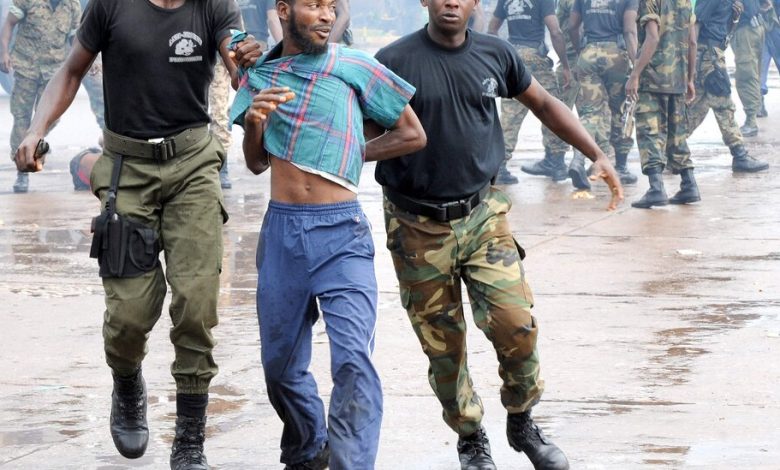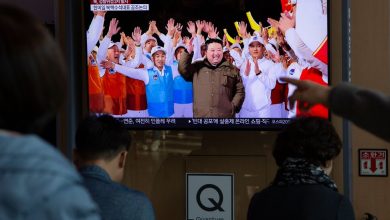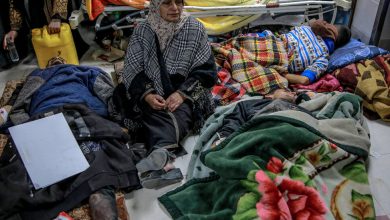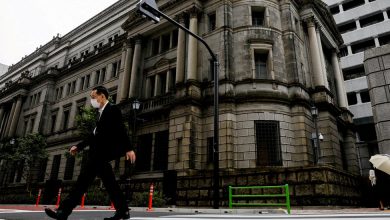Over a Decade After 150 Were Killed, Guinea Puts an Ex-President on Trial

DAKAR, Senegal — The trial of Guinea’s former president and 10 others accused of responsibility for a 2009 stadium massacre and mass rape began Wednesday in the country’s capital, in what survivors and relatives of victims hope will bring long-delayed justice.
Thirteen years ago, on Sept. 28, 2009, security forces stormed a stadium where tens of thousands of pro-democracy protesters were demonstrating against the president at the time, Capt. Moussa Dadis Camara, who had seized power in a coup.
More than 150 people were killed, hundreds of others were wounded and at least 109 women were raped or sexually assaulted, according to a U.N. investigation and witness accounts gathered by Human Rights Watch.
The trial is unprecedented in Guinea, with a new courtroom built in the capital, Conakry, for the occasion. The case is seen by many human rights experts as a test for a West African country in holding army officers to account.
The trial comes even as military leaders have toppled governments in the region, including in Guinea, a nation of 13 million where Col. Mamady Doumbouya, a U.S.-trained officer, staged a coup last year. Guinea has suffered from decades of state repression and impunity, leaving some observers wondering whether its judiciary, which has been historically been weak, can hold a fair trial on the massacre.
Since Colonel Doumbouya seized power in September, 2021, the Guinean authorities have cracked down on civil liberties, including banning protests, dissolving the country’s main pro-democracy coalition, and firing live ammunition at demonstrators. At least seven protesters died in clashes with security forces this summer. The government of Colonel Doumbouya has pushed for the trial, which is expected to last at least a year, and has framed it as a chance for overdue justice.
Many survivors of the 2009 massacre and relatives of victims have praised him for bringing the country’s former president and others to court, despite the criticisms of his rule by rights groups.
“He is a soldier who thinks about us, who takes our pain and abandonment into consideration,” said Sarah Cissé, 43, a Guinean political activist and former humanitarian worker who participated in the 2009 demonstration. “I want to thank him.”
The officials standing trial include Captain Camara; his aide-de-camp, who witnesses say was at the stadium and directing guards there; and the head of a gendarme unit involved in the killings. Shortly after the massacre, Captain Camara deflected responsibility on his aide-de-camp — who shot Captain Camara in the head in retaliation, according to the authorities at the time. Captain Camara, who had held power in Guinea for about a year, survived the shooting and lived in exile in Burkina Faso until returning to Guinea last week for the trial.
His lawyer, Pépé Antoine Lama, said Captain Camara would plead not guilty. “He has always asked to return home to face justice.” The U.N. investigation said he bore “command responsibility” in the massacre and accused him of “criminal responsibility.”
The United Nations has labeled the violence in 2009 as a crime against humanity, and Human Rights Watch said the violence was premeditated.
Witness testimony revealed that hundreds of members of the red beret presidential guard, gendarmes and anti-riot police stormed the stadium and opened fire as civil society activists and opposition supporters were chanting in a largely peaceful atmosphere.
Soldiers later raped dozens of women inside the stadium and around it, sexually assaulted them with their weapons and killed several after raping them, according to testimonies collected by Human Rights Watch. The United Nations said that the security forces were armed with pistols, clubs, knives and AK-47-style rifles, among other weapons.
More women were then taken from the stadium and a clinic to private homes, where members of the presidential guard raped them for days, according to testimonies.
“It unfolded for hours, or more, for some,” Ms. Cissé, who said she had been sexually assaulted by so many soldiers that she fainted. “In broad daylight.”
Asmaou Diallo, whose son was killed in the stadium, said she wanted “justice, reparations and guarantees that this will never happen again.”
The Guinean authorities began an investigation into the massacre in 2010, which concluded in 2017. But it took five more years and a new political leadership to organize the trial.
Still, many human rights observers doubt that the trial can take place fairly — or safely — in Guinea’s current political climate. And lawyers say they have received few guarantees that witnesses and relatives of victims could, without fear of retribution, testify against the accused, who may still benefit from some support among the armed forces.
Alpha Amadou Bah, the head of a lawyers’ collective representing more than 600 survivors and relatives of victims, said there was also a risk that the junta would turn it into a political trial.
On Tuesday evening, Captain Camara was interviewed by a prosecutor and detained alongside two former senior military officers, his lawyer told reporters.
“How the trial goes on efficiently and meaningfully, with an opening that is not just ceremonial, remains an open question,” said Elise Keppler, an associate international justice director at Human Rights Watch, who was in Conakry for the trial’s opening.
Ms. Cissé, the former political activist and survivor, echoed these concerns. “If we start, and we don’t finish, it will only be more traumatizing for us, as victims.”
Mohamed Barry contributed reporting from Conakry, Guinea.





